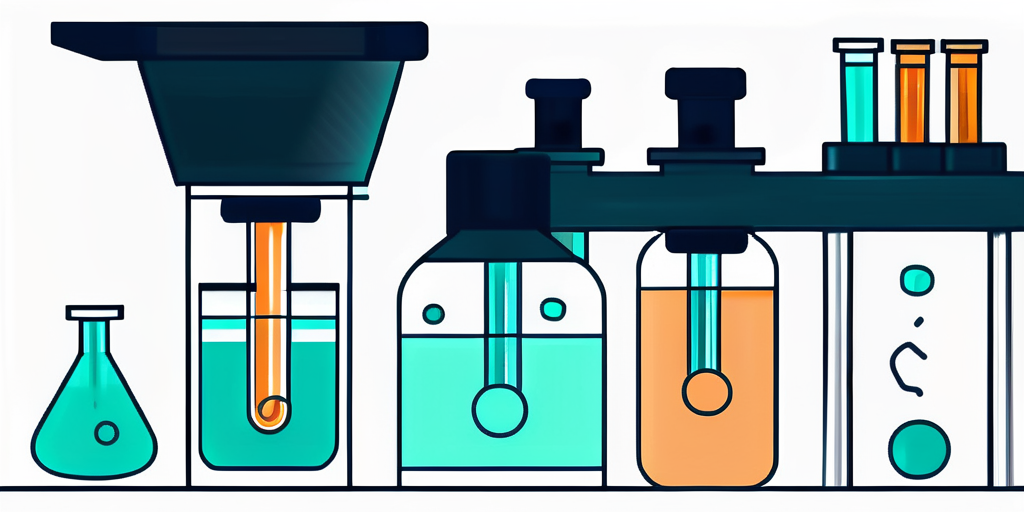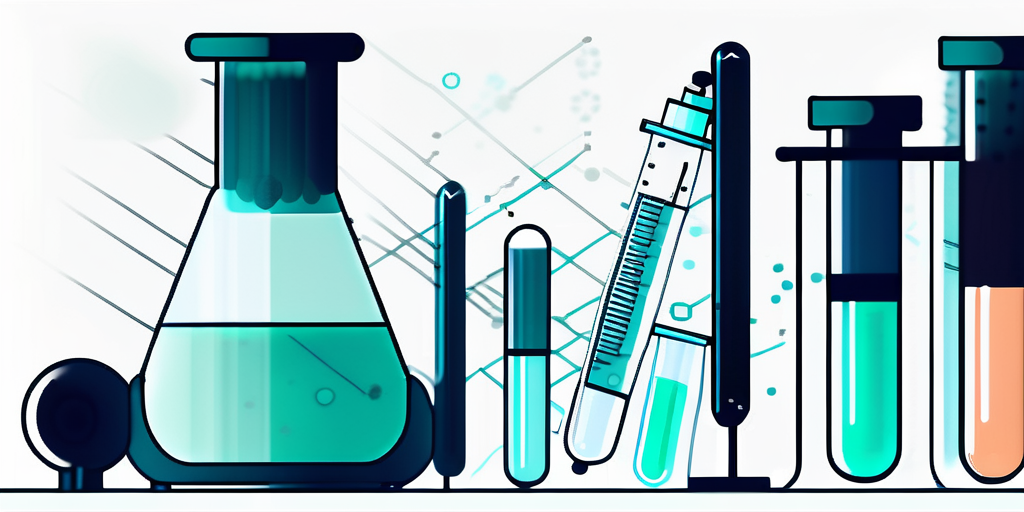
Quick CV Dropoff
Send us your CV

Are you considering a career in pharmaceutical quality assurance? Look no further! This ultimate guide will provide you with a comprehensive overview of this exciting field. From understanding the role of quality assurance in the pharmaceutical industry to exploring different job opportunities and career growth prospects, we've got you covered. So, let's dive in and discover everything you need to know about pharmaceutical quality assurance jobs.
Quality assurance plays a crucial role in ensuring that pharmaceutical products meet the highest standards of safety, efficacy, and quality. In a highly regulated industry like pharmaceuticals, it is essential to have robust quality assurance processes in place to prevent errors or defects that could potentially harm patients or compromise the integrity of the product.

One of the primary goals of quality assurance in the pharmaceutical industry is to ensure compliance with regulatory requirements. This involves conducting thorough assessments, inspections, and audits to verify that manufacturing practices adhere to Good Manufacturing Practices (GMP) guidelines and other relevant regulations.
Beyond regulatory compliance, quality assurance professionals also contribute to continuous improvement efforts across all stages of the drug development and manufacturing process. By implementing quality control measures, they help identify and address any potential issues, thereby reducing the risk of product recalls or other quality-related problems.
The importance of quality assurance in the pharmaceutical industry cannot be overstated. By ensuring product quality, safety, and efficacy, quality assurance professionals play a crucial role in safeguarding public health and maintaining consumer trust. A single oversight in quality control could have serious consequences, so their work is vital to the integrity of the entire industry.
A quality assurance professional in the pharmaceutical industry has a wide range of responsibilities. These may include:
Furthermore, quality assurance professionals are responsible for staying up to date with the latest industry trends and advancements. They must continuously educate themselves on new regulations, technologies, and best practices to ensure that their organizations remain at the forefront of quality assurance in the pharmaceutical industry.
Additionally, quality assurance professionals often play a vital role in the validation of manufacturing processes and equipment. They work closely with engineers and scientists to develop validation protocols and execute validation studies to ensure that the manufacturing processes consistently produce products of the highest quality.
Moreover, quality assurance professionals also contribute to the training and development of employees within the organization. They design and deliver training programs to ensure that all personnel involved in the manufacturing process understand and adhere to the quality assurance procedures and guidelines.
In conclusion, quality assurance professionals in the pharmaceutical industry have multifaceted responsibilities that extend beyond regulatory compliance. Their work is instrumental in maintaining the highest standards of product quality, safety, and efficacy, which ultimately contributes to the well-being of patients and the overall success of the industry.
If you're considering a career in pharmaceutical quality assurance, there are specific skills and qualifications that can set you up for success.
Most quality assurance roles in the pharmaceutical industry require a bachelor's degree in a scientific discipline such as chemistry, biology, or pharmacy. Some positions may also require a master's degree or a related advanced degree.
Additionally, having a strong understanding of regulatory requirements and quality management principles is highly beneficial. Pursuing certifications such as Certified Quality Auditor (CQA) or Certified Quality Engineer (CQE) can further enhance your credentials.
Along with the educational requirements, several key skills are essential for success in pharmaceutical quality assurance jobs:
Pharmaceutical quality assurance jobs encompass a variety of roles, each with its own unique responsibilities and requirements. Let's explore two common positions within this field:
A quality assurance analyst is primarily responsible for conducting audits, inspections, and assessments to ensure compliance with regulatory requirements. They review documentation, perform risk assessments, and contribute to the development and improvement of quality systems and processes. Attention to detail and analytical skills are crucial for success in this role.
A quality assurance manager oversees the entire quality assurance function within an organization. In addition to ensuring compliance, they develop and implement quality strategies, manage the quality management system, and lead a team of quality assurance professionals. Strong leadership, communication, and problem-solving skills are vital for this position.
Ready to pursue a career in pharmaceutical quality assurance? Here's a glimpse into the hiring process to help you prepare:
To stand out in the competitive job market, tailor your resume and cover letter to highlight relevant experience and qualifications. Emphasize your understanding of regulatory requirements, your attention to detail, and any previous work in quality assurance or related fields. Be sure to include any certifications or advanced degrees you have obtained.
The interview phase is your opportunity to showcase your skills and demonstrate why you're the ideal candidate. Be prepared to answer questions about your knowledge of regulatory compliance, your problem-solving abilities, and your experience working in a team environment. Research the company and come prepared with thoughtful questions to ask the interviewer.
Pharmaceutical quality assurance offers excellent career growth opportunities for professionals looking to advance their careers. Continuous learning and professional development are crucial for staying ahead in this field.

Participating in industry conferences, workshops, and training programs can broaden your knowledge and keep you updated on the latest regulatory changes and quality assurance practices. Additionally, seeking mentorship from experienced professionals can provide invaluable guidance and support as you progress in your career.
For those aspiring to leadership roles, gaining supervisory experience and pursuing advanced certifications can help open doors to higher positions. Developing strong leadership and communication skills, along with honing your strategic thinking abilities, will position you for success as you advance in your quality assurance career.
Pharmaceutical quality assurance roles present a dynamic and fulfilling career path for those dedicated to safeguarding the integrity and quality of medical products. Understanding the nuances of the role, acquiring essential skills, and embracing opportunities for professional growth are essential steps toward a successful journey in this field. Seize the opportunity to explore the vast possibilities available in pharmaceutical quality assurance today! Reach out to us to discover exciting career opportunities and lay the groundwork for a rewarding and impactful career in ensuring the safety and efficacy of pharmaceutical products.